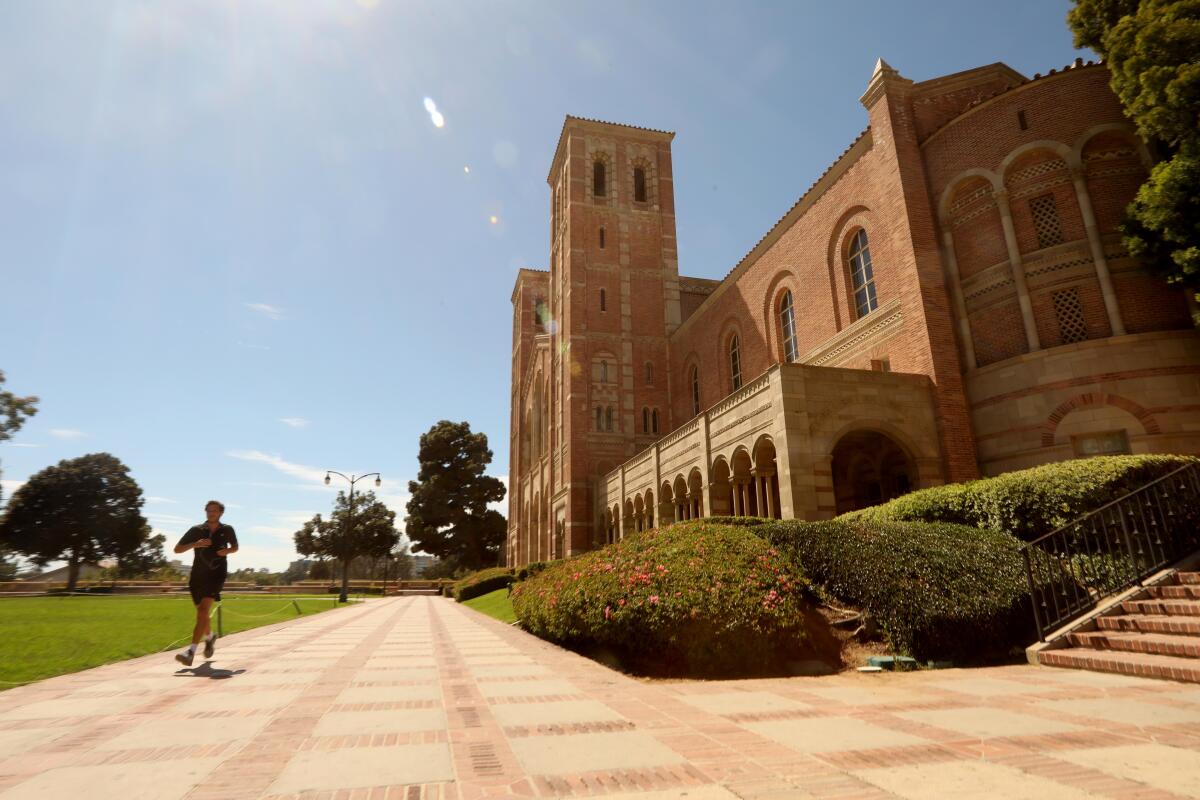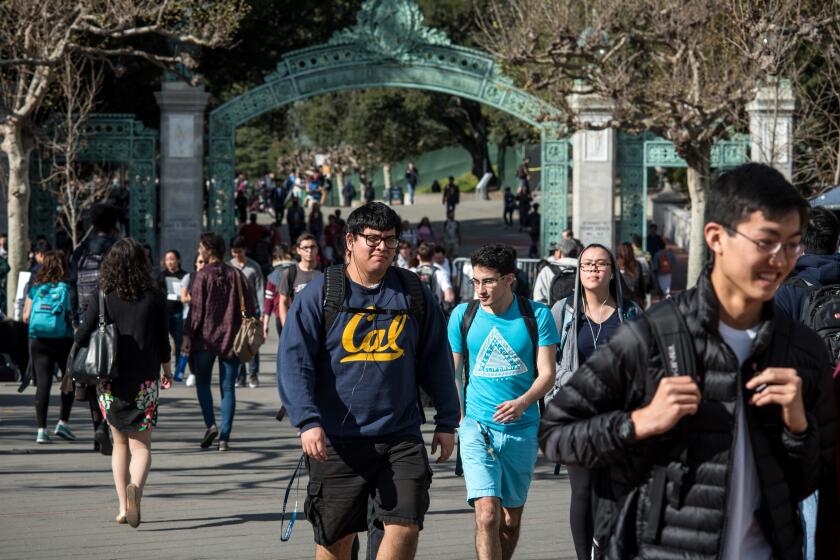Editorial: A strike by UC academic workers would tarnish the prestigious university system

- Share via
If the University of California and 48,000 academic workers fail to reach an agreement on pay increases and other benefits in the next few days it may tarnish a higher education system long seen as the best in the country.
With less than a month before final exams, communities at campuses across the UC system are nervously awaiting an agreement before Nov. 14. That’s when the workers, including teaching assistants, tutors, postdoctoral scholars and other academic employees, are prepared to strike, which means students would have to rely solely on professors for grades or one-on-one help. It’s an implosion that should have been averted long before now, considering that negotiations have been underway for more than a year.
The workers are represented by four bargaining units of the United Auto Workers and have banded together for more bargaining power. These workers, who say they do most of the teaching, grading and research, last week announced their membership authorized a statewide strike if UC doesn’t cease “unlawful conduct” by doing things such as making contract changes without first discussing them during negotiations. In response, UC maintains it is listening to these workers with a “genuine willingness to compromise” as shown by the tentative agreements on issues such as health and safety after more than 50 bargaining sessions.
UC campuses need more housing, not more NIMBYism. But UC and the state must do better to soften the impacts of nonstop growth on campuses and in communities.
Fair compensation has been the stickiest — and most important — demand on which UC and the four unions representing the workers have been unable to concur. The heart of the debate is whether these workers are earning enough to afford housing near campus, which can be outrageously expensive, particularly in Los Angeles, Berkeley, Irvine and Santa Cruz.
They have a point. The average teacher assistant salary is about $24,000, which is considerably less than median rent in Los Angeles. More than 92% of these workers are rent-burdened, a designation that means more than 30% of their salary is allocated for housing costs. Of these rent-burdened employees, about 40% use more than half of their salary on housing.
UC has offered pay increases during the multiyear contracts, ranging from 4% in the first year for academic researchers to 7% for academic student employees. The proposal included smaller raises in subsequent years to the different bargaining units, but workers rejected the offers, saying they don’t go far enough. There are other provisions on the bargaining table, including a child-care subsidy and transit passes, that will help ease affordability, but agreeing on adequate pay raises is key.
What does it say about a university system touted as one of the Golden State’s best attributes if its intellectual workforce can’t afford to live in the state? The UC system has long been considered among the finest in the country, with six of its campuses listed among the top 10 public universities in the United States in the U.S. News & World Report’s 2023 Best Colleges rankings.
It’s clear that UC administrators have tough budget choices to make. However, these academic workers play such a critical role and deserve to earn enough to pay for basic needs.
More to Read
A cure for the common opinion
Get thought-provoking perspectives with our weekly newsletter.
You may occasionally receive promotional content from the Los Angeles Times.











